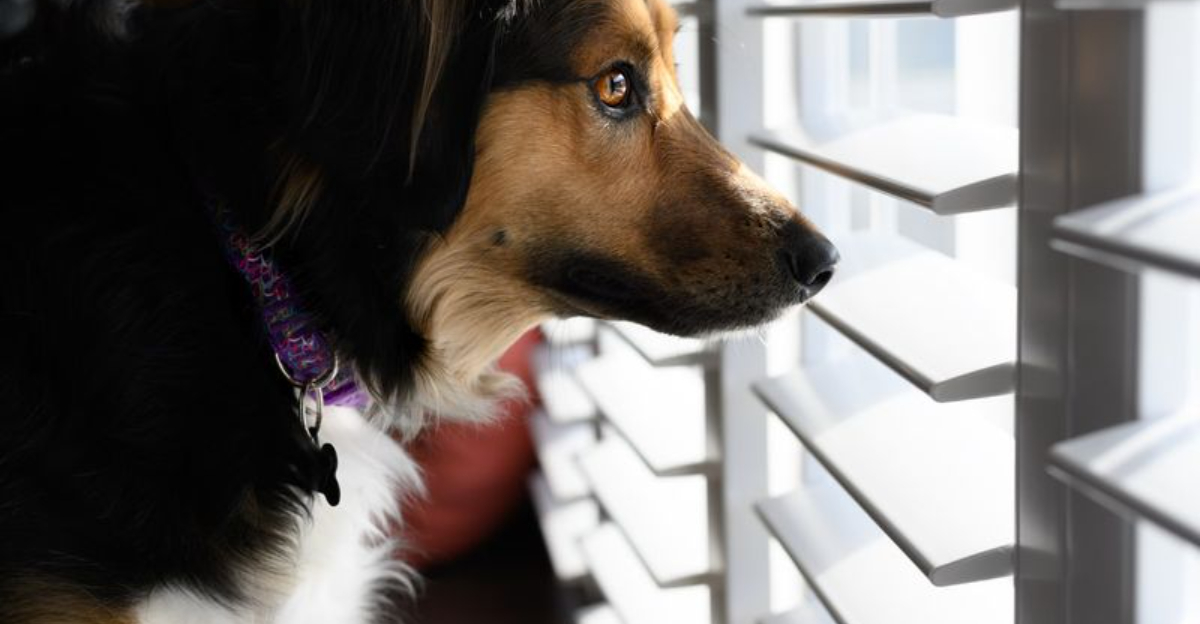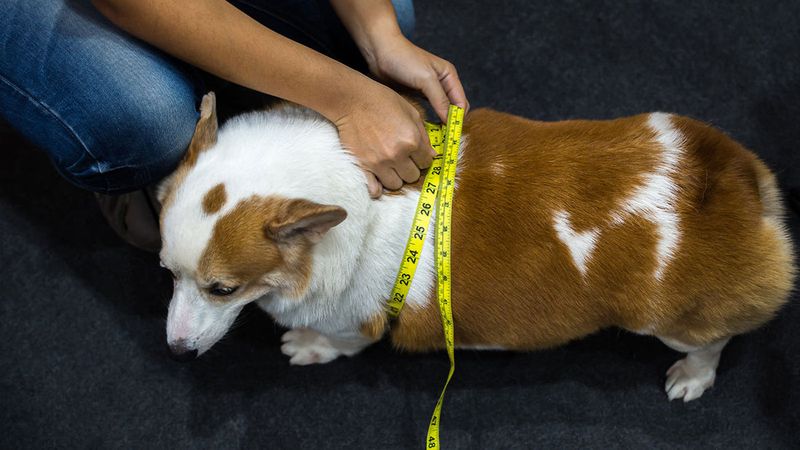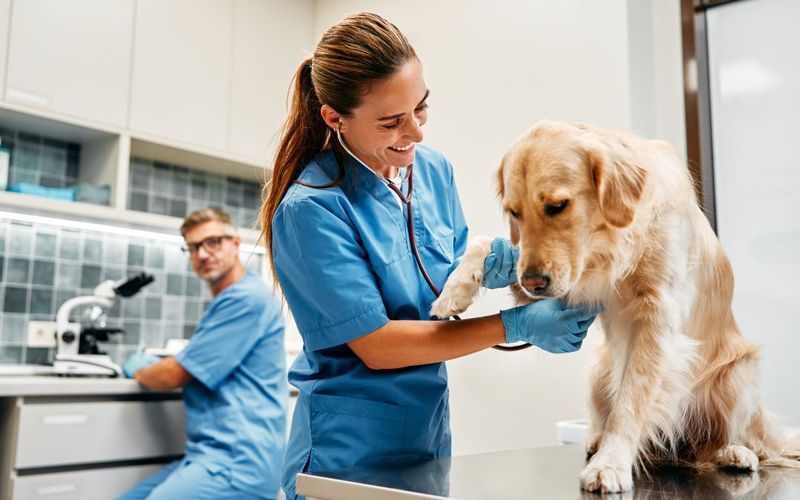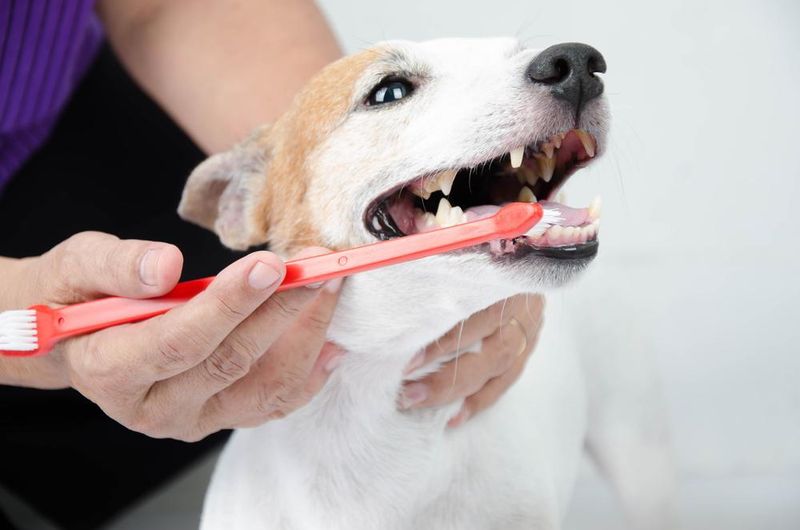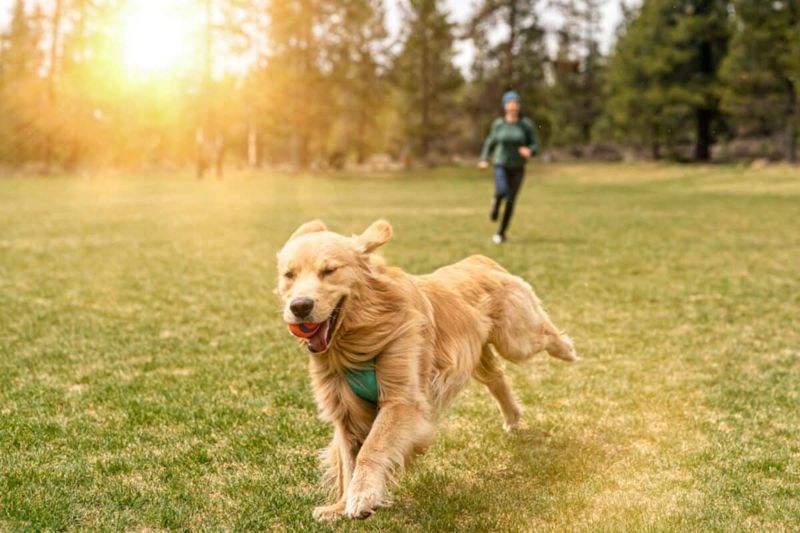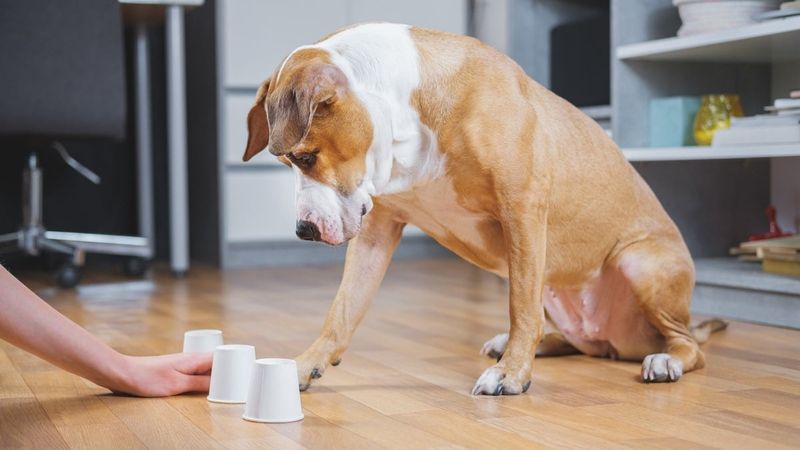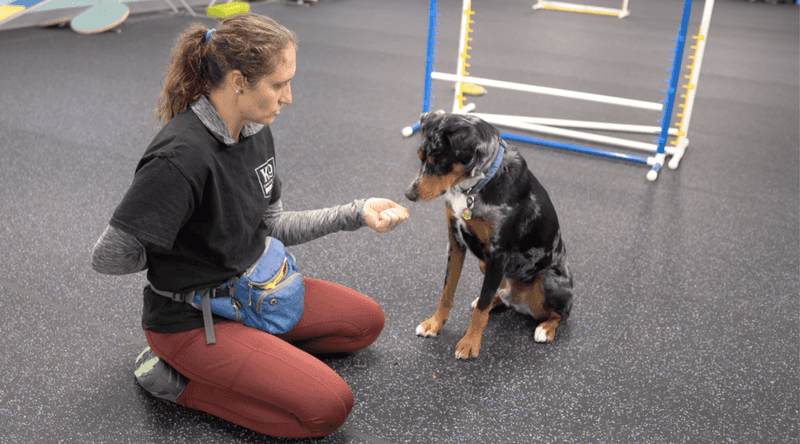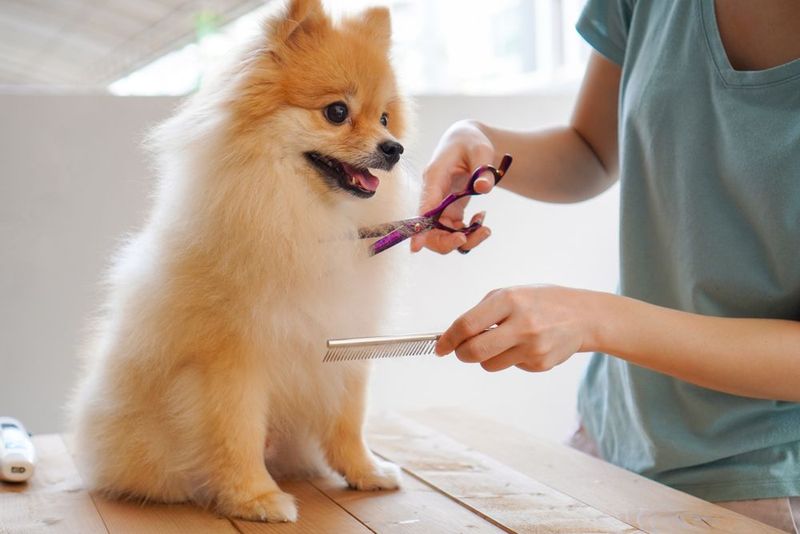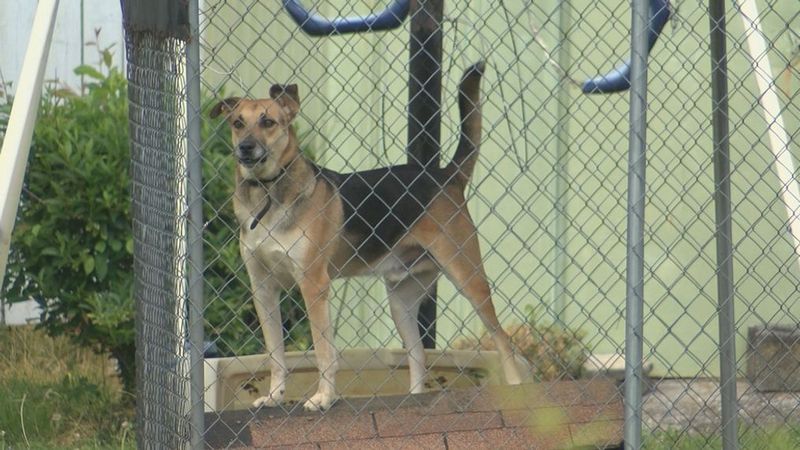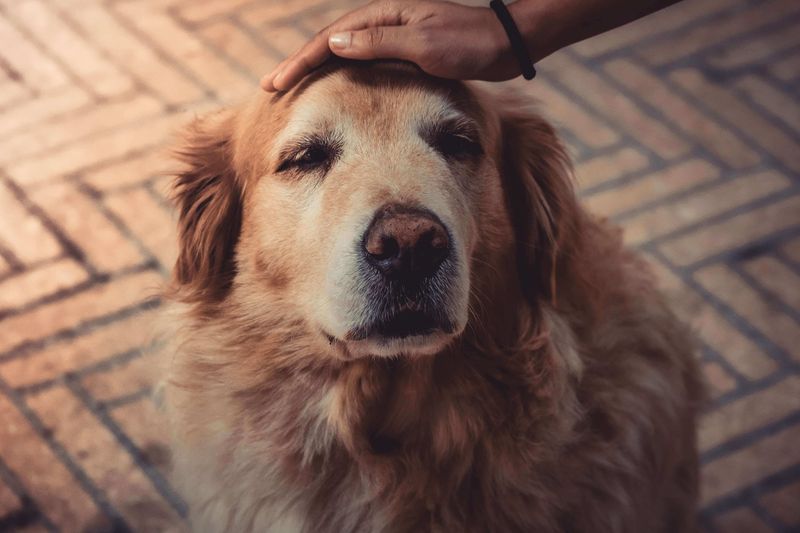Owning a dog is a rewarding experience, but sometimes well-meaning owners unwittingly make choices that can harm their pets. With insights from veterinarians, we explore common mistakes pet owners should avoid to ensure their furry friends lead happy and healthy lives. From dietary errors to neglecting mental stimulation, these seemingly small oversights can have significant impacts on your dog’s well-being. Read on to discover how slight changes in your care routine can make a world of difference for your canine companion.
Overfeeding Your Dog
When it comes to feeding, many dog owners equate food with love, leading to overfeeding. This can result in obesity, which poses serious health risks. Obesity often leads to diabetes, arthritis, and heart disease. It’s crucial to follow your vet’s dietary recommendations to keep your dog at a healthy weight.
A balanced diet ensures longevity and vitality, but measuring portions isn’t always straightforward. Always use a measuring cup, and resist those pleading puppy eyes for extra treats.
Beware of interpreting food labels incorrectly. Each brand has different recommendations, and adjustments might be needed based on activity levels.
Skipping Regular Vet Visits
Regular vet visits are essential for catching health issues early, yet many owners neglect this aspect of pet care. Without routine check-ups, conditions like dental disease and parasites can go unnoticed.
Annual or bi-annual visits ensure vaccinations are up-to-date and help track your pet’s overall health. Vets can offer tailored advice on diet, exercise, and preventative care.
Even if your dog appears healthy, subtle signs of illness can be missed without professional evaluation. Prioritize these visits as you would your own health screenings to ensure your pet remains in top condition.
Ignoring Dental Care
Dental hygiene is often overlooked, yet it’s vital for your dog’s health. Neglecting dental care can lead to periodontal disease, which affects not only the mouth but also organs like the heart and kidneys.
Regular brushing and dental check-ups can prevent painful issues and expensive treatments down the line. Consider providing chew toys and dental treats designed to maintain oral health.
Establishing a dental routine early makes it easier for both you and your pet. Remember, a healthy mouth leads to a happy, healthier dog. Don’t underestimate the power of a good toothbrush and some patience.
Lack of Exercise
Exercise is not just about physical health; it’s crucial for mental stimulation and happiness too. Dogs that lack regular activity may become bored, anxious, or even develop destructive behaviors.
Daily walks, playtime, and interactive toys help keep your dog’s body and mind fit. Tailor activities to your dog’s breed, age, and health to avoid overexertion.
Incorporate variety to keep things interesting—switching routes, new games, and socialization with other dogs. These activities foster a strong bond and reduce behavioral issues, contributing to a joyful life together.
Neglecting Mental Stimulation
Mental stimulation is as crucial as physical exercise, yet it’s often overlooked. Without challenges and interaction, dogs can become bored, anxious, and even depressed.
Engage your dog with puzzle toys, training sessions, and scent games. These activities nurture their natural instincts and sharpen their cognitive abilities.
Incorporate regular playtime to strengthen your bond and provide a sense of purpose. A mentally stimulated dog is happier and well-adjusted, showcasing fewer behavioral problems. Keeping their minds active is key to a fulfilling life.
Using Inappropriate Training Methods
Training methods can significantly impact a dog’s behavior and relationship with its owner. Harsh techniques or punishment-based strategies can lead to fear, aggression, and anxiety.
Positive reinforcement, like treats and praise, encourages desirable behavior without stress. It’s a more effective and humane approach that strengthens the bond between owner and pet.
Seek advice from professional trainers to tailor techniques to your dog’s unique needs. Training should be a fun and rewarding experience, fostering trust and communication. Remember, patience and consistency are key to successful training.
Keeping a Poor Grooming Routine
Grooming is more than just an aesthetic pursuit; it’s a health necessity. Neglecting grooming can lead to matting, skin infections, and discomfort. Each breed has specific grooming needs, from brushing frequency to bathing schedules.
Regular grooming sessions help maintain healthy skin and coat, and also provide an opportunity to check for abnormalities. Use these times to bond with your pet and make the experience enjoyable rather than a chore.
Incorporate grooming into your regular routine to ensure it becomes a positive experience for both you and your dog.
Leaving Dogs Alone for Too Long
Dogs are social creatures that thrive on companionship. Leaving them alone for extended periods can lead to separation anxiety and destructive behaviors.
Ensure your dog has enough interaction during the day, whether through walks, playtime, or hiring a pet sitter. Consider doggy daycare if your schedule doesn’t allow for constant companionship.
Fill their space with toys and comfort items to ease loneliness. Establish a routine to help your dog feel secure, reducing anxiety and fostering happiness. Companionship is key to a balanced, fulfilled dog.
Not Providing Proper Shelter
A comfortable and safe environment is crucial for your dog’s well-being. Inadequate shelter can expose them to harsh weather conditions, leading to health issues.
Provide a warm, dry, and secure area where your dog can retreat and relax. If outdoors, ensure the shelter is insulated and weatherproof. Indoors, designate a quiet, comfortable space free from drafts.
Monitor the temperatures in their environment, adjusting as necessary to keep your pet comfortable. Proper shelter is not just about physical security, but also about giving your dog a space to feel safe and loved.
Exposure to Harmful Foods
Some human foods can be toxic to dogs, including chocolate, grapes, and onions. Accidental ingestion can result in severe health problems or even be fatal.
Educate yourself on harmful foods and secure them out of reach. Be vigilant about scraps and leftovers, and encourage family members to do the same.
If you suspect your dog has ingested something harmful, contact your vet immediately. Prevention is the best cure, so keep a list of dangerous foods handy and ensure everyone in your household is informed. Protecting your dog starts with awareness.
Ignoring Age-Specific Needs
As dogs age, their needs change, requiring adjustments in care routines. Ignoring these changes can negatively affect their quality of life. Older dogs may need modified diets, less strenuous exercise, and more frequent veterinary visits.
Pay attention to signs of aging, such as stiffness or decreased energy, and adapt accordingly. Provide supportive bedding and ramps if necessary to ease mobility.
Understanding and addressing age-specific needs ensures your dog enjoys their golden years comfortably. Remember, your gentle care can make all the difference in their well-being.
